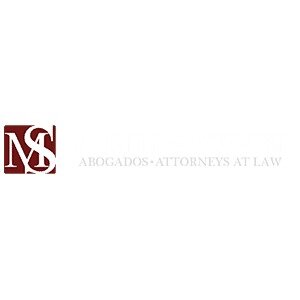Best Nonprofit & Charitable Organizations Lawyers in Dominican Republic
Share your needs with us, get contacted by law firms.
Free. Takes 2 min.
Or refine your search by selecting a city:
List of the best lawyers in Dominican Republic
About Nonprofit & Charitable Organizations Law in Dominican Republic
In the Dominican Republic, nonprofit and charitable organizations are entities formed to pursue non-commercial purposes. These include associations, foundations, and other bodies dedicated to public welfare, culture, education, science, and other social causes. The legal framework governing these organizations ensures they operate within defined mandates while providing transparency and accountability in their activities.
Nonprofit organizations must adhere to specific legal requirements, including registration with governmental authorities, compliance with regulations concerning their conduct and financial activities, and adherence to standards in corporate governance. These rules are crucial for maintaining the integrity and purpose of these entities, ensuring they genuinely benefit the community.
Why You May Need a Lawyer
Engaging with the legal fabric of nonprofit organizations can be complex, and a lawyer can provide invaluable guidance in several situations:
- **Formation and Registration:** Drafting and filing the necessary documents to legally establish a nonprofit or charitable organization.
- **Compliance:** Ensuring adherence to local laws and regulations, which can involve tax exemption compliance and periodic reporting obligations.
- **Governance Issues:** Navigating conflicts or governance issues that may arise within the organization.
- **Contractual Matters:** Reviewing and drafting contracts related to partnerships, donations, sponsorships, and other legal documents.
- **Resolving Disputes:** Handling legal disputes involving the organization, ranging from internal disagreements to external legal challenges.
Local Laws Overview
Key aspects of nonprofit and charitable organization laws in the Dominican Republic include:
- **Legal Personality:** Nonprofits must be registered to obtain legal personality, which allows them to perform legal acts, enter contracts, and own property.
- **Registration Process:** Registration is overseen by the Ministry of Economy, Planning, and Development, requiring detailed statutes and organisational objectives.
- **Taxation:** Nonprofits may qualify for tax exemptions; however, they must comply with reporting standards to maintain these benefits.
- **Governance:** Organizations must implement sound governance practices, maintaining transparent record-keeping and accountability standards.
- **Foreign Donations and Funding:** There are regulations concerning foreign contributions, requiring clear documentation and purpose-related stipulations.
Frequently Asked Questions
1. What is required to start a nonprofit organization in the Dominican Republic?
To start a nonprofit, you need to draft a founding charter, register with the appropriate governmental body, and comply with legal formalities for recognition.
2. Are nonprofit organizations tax-exempt in the Dominican Republic?
Yes, nonprofits can qualify for tax exemptions, but they must adhere to specific legal requirements and regular reporting duties to maintain their status.
3. Can a nonprofit in the Dominican Republic receive foreign funding?
Yes, but there are regulations regarding the acceptance and use of foreign funds, requiring clear documentation and transparency in their application.
4. What kinds of activities can a nonprofit pursue?
Nonprofits in the Dominican Republic can engage in various activities, including social welfare, education, culture, research, and community development.
5. How can a nonprofit lose its status?
Nonprofits can lose their status through non-compliance with legal provisions, such as governance misconduct, failure to report, or financial mismanagement.
6. Is establishing a foundation different from other nonprofit types?
Foundations require a specific endowment and must adhere to regulations governing asset management and fiduciary responsibilities.
7. Can a nonprofit distribute profits?
No, nonprofits must reinvest any excess revenue in their mission-oriented activities rather than distributing profits to members.
8. How can a nonprofit ensure compliance with local laws?
Compliance can be ensured by staying informed about legal updates, maintaining detailed records, and seeking legal counsel when necessary.
9. What is the role of the board of directors in a nonprofit?
The board is responsible for governance, setting strategic direction, ensuring legal compliance, and overseeing the management of the organization.
10. Do nonprofits have reporting obligations?
Yes, nonprofits are required to submit annual reports, financial statements, and possibly activity reports to relevant government bodies.
Additional Resources
For further assistance, consider reaching out to the following resources:
- **Ministry of Economy, Planning, and Development:** Offers guidance on registration and compliance.
- **Local legal practitioners specializing in nonprofit law:** Provide support for legal structuring and compliance.
- **Chambers of Commerce and Legal Associations:** Assist with networking and access to professional legal help.
Next Steps
If you require legal assistance with nonprofit and charitable organizations in the Dominican Republic, consider the following steps:
- **Identify Your Needs:** Clearly define the specific legal help you need, whether it's registration, compliance, governance, or dispute resolution.
- **Consult a Lawyer:** Seek advice from a legal professional experienced in nonprofit law to understand your obligations and opportunities.
- **Stay Informed:** Regularly review changes in laws and regulations that might affect your organization's operations and compliance requirements.
Lawzana helps you find the best lawyers and law firms in Dominican Republic through a curated and pre-screened list of qualified legal professionals. Our platform offers rankings and detailed profiles of attorneys and law firms, allowing you to compare based on practice areas, including Nonprofit & Charitable Organizations, experience, and client feedback.
Each profile includes a description of the firm's areas of practice, client reviews, team members and partners, year of establishment, spoken languages, office locations, contact information, social media presence, and any published articles or resources. Most firms on our platform speak English and are experienced in both local and international legal matters.
Get a quote from top-rated law firms in Dominican Republic — quickly, securely, and without unnecessary hassle.
Disclaimer:
The information provided on this page is for general informational purposes only and does not constitute legal advice. While we strive to ensure the accuracy and relevance of the content, legal information may change over time, and interpretations of the law can vary. You should always consult with a qualified legal professional for advice specific to your situation.
We disclaim all liability for actions taken or not taken based on the content of this page. If you believe any information is incorrect or outdated, please contact us, and we will review and update it where appropriate.
Browse nonprofit & charitable organizations law firms by city in Dominican Republic
Refine your search by selecting a city.
















